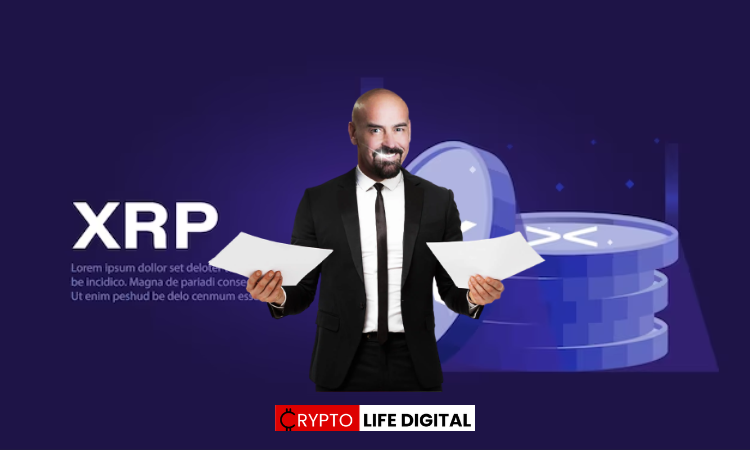Attorney John Deaton Reiterates XRP’s Non-Security Status, Draws Comparisons to GRAM Token

In a recent Twitter thread, Attorney John Deaton, Managing Partner at Deaton Law Firm, emphasized XRP’s Non-Security Status. Deaton, a prominent crypto advocate, expressed confidence that Judge Analisa Torres would address the issue of XRP secondary sales and the token’s classification in the ongoing SEC vs Ripple case. This assertion follows Deaton’s earlier comment suggesting that the judge would discuss these aspects.
Read Also: BONE Surpasses ETH and BTC, Attracting Attention from Seasoned Crypto Enthusiast Eric Cryptoman
#XRP IS NOT A SECURITY
Just as 🦫s, 🍊 groves, 🥃, chinchillas, condos, and #BTC are not securities. All of these assets may have been once marketed, packaged, offered, and sold as an investment contract, but the asset remained what it always was.
— John E Deaton (@JohnEDeaton1) July 3, 2023
Deaton fights continuously on XRP’s Non-Security Status
Deaton disagreed with other experienced lawyers who believed that Judge Torres would avoid commenting on the token itself. According to Deaton, if Judge Torres overlooks the underlying asset and the secondary market sales of XRP, she would essentially bypass a significant portion of the SEC’s argument against the cryptocurrency.
Read Also: Terra Classic Community Divided Over Proposal To Appoint Binance CEO CZ As Ecosystem Leader
The attorney firmly believes that Judge Torres will address both the XRP secondary market sales and the underlying asset in a similar manner to Judge Kevin Castel’s approach in the SEC vs Telegram lawsuit. Unlike the Ripple case, the Telegram lawsuit involved an Initial Coin Offering (ICO) with written contracts. Deaton noted that the SEC successfully obtained a preliminary injunction against Telegram on March 25, 2020. Additionally, he highlighted how Judge Castel addressed GRAM secondary market sales in his ruling, considering them part of the overall scheme.
“At the preliminary injunction stage, the intended resale of Grams by Telegram's conduits into the secondary market is likely to involve U.S. purchasers and would likely satisfy Morrison's
transactional test.”— John E Deaton (@JohnEDeaton1) July 3, 2023
Deaton quoted a section of Judge Castel’s ruling, which stated, “At the preliminary injunction stage, the intended resale of Grams by Telegram’s conduits into the secondary market is likely to involve U.S. purchasers and would likely satisfy Morrison’s transactional test.” However, Deaton clarified that the Ripple case differs from Telegram since it involves a functioning platform rather than a pure ICO. He also pointed out that the U.S. Government Accountability Office and the Financial Crimes Enforcement Network (FinCEN) did not classify GRAM as a virtual currency as they did with XRP in previous years.
Deaton Says GRAM did not meet the criteria outlined in the SEC’s 2019 framework for digital assets
Moreover, Deaton mentioned that GRAM did not meet the criteria outlined in the SEC’s 2019 framework for digital assets, unlike XRP. He added that the report indicated that if XRP is used for immediate payments, it is unlikely to satisfy the Howey test. The attorney highlighted that MoneyGram had utilized XRP in June 2019, whereas GRAM had not been employed by the payment giant. Notably, Bailard Inc., a business that provided Ethics Disclosures in 2020 and 2021, informed the SEC that it would exclusively purchase and trade the three digital assets widely accepted by both the SEC and the industry as non-securities: Bitcoin (BTC), Ethereum (ETH), and XRP.
Attorney John Deaton concluded by pointing out that GRAM was not included in Bailard Inc.’s list. His remarks highlight the differences between XRP and GRAM in terms of regulatory treatment and industry acceptance.
Please note that the information provided is based on Attorney John Deaton’s statements and opinions, and it should not be considered legal or financial advice. The ongoing SEC vs Ripple case and the classification of XRP are subject to the court’s final decision.
Follow us on Twitter, Facebook, Telegram, and Google News.

Dr. Olajide Samuel juggles the demands of medical studies with a passion for cryptocurrency. A seasoned blogger, Olajide shares his vast global knowledge of the crypto space, offering insights to enthusiasts. Despite his busy schedule, his commitment to crypto remains strong, and he actively seeks ways to contribute to its future.






